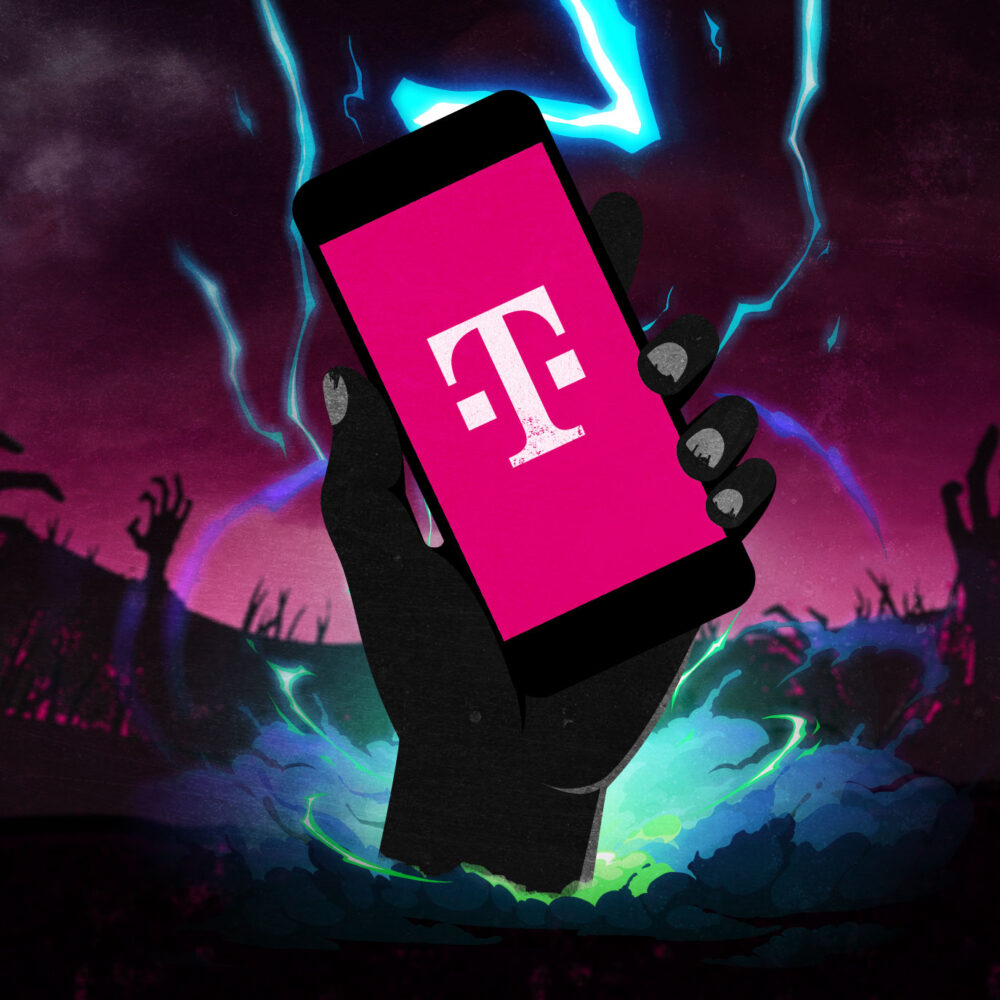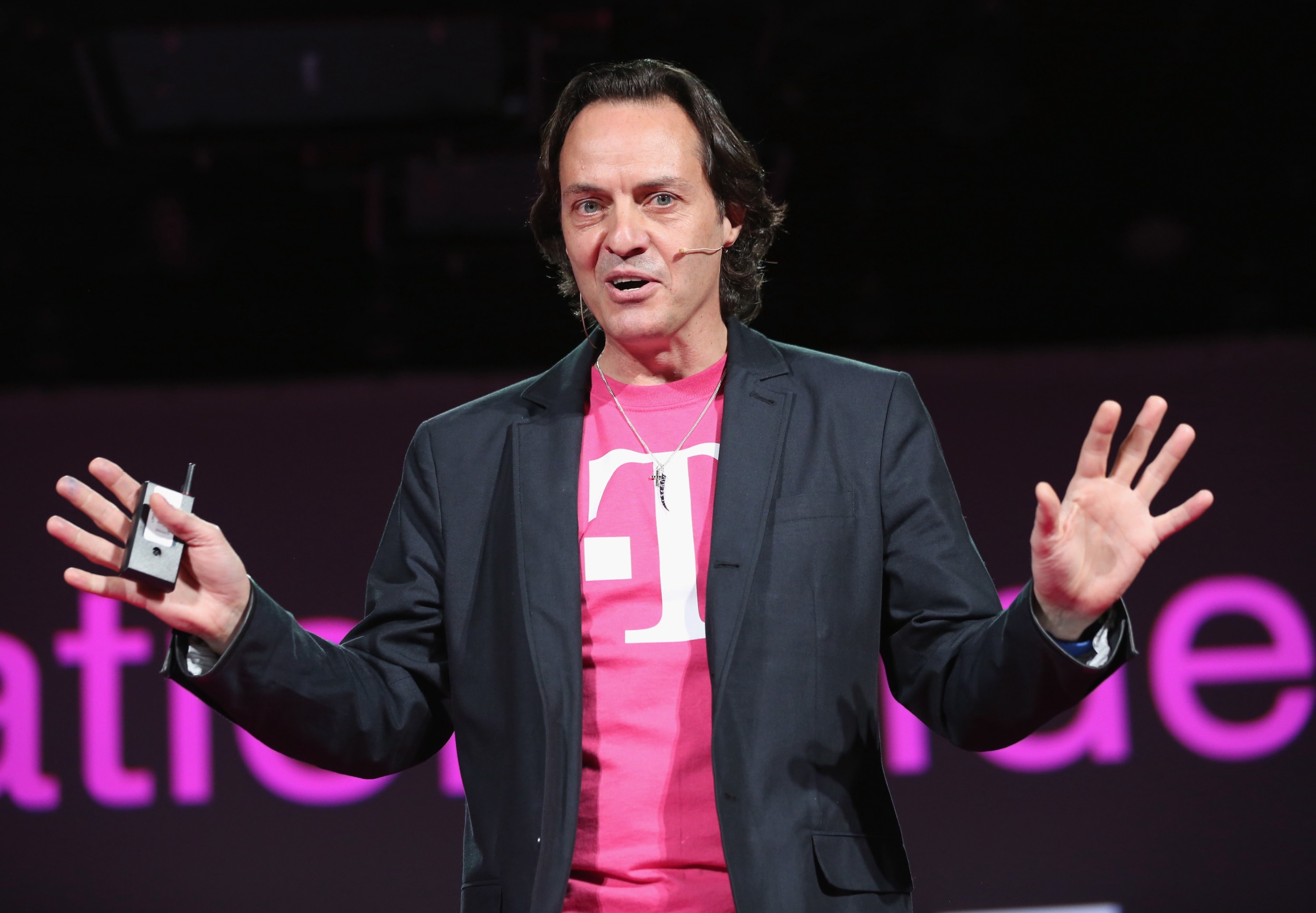“I am still alive”: Users say T-Mobile must pay for killing “lifetime” price lock

“Make T-Mobile feel the pain”
We obtained 900 complaints the FCC received about T-Mobile’s infamous price hike.

Credit:
Aurich Lawson | Getty Images
T-Mobile promised users who bought certain mobile plans that it would never raise their prices for as long as they lived—but then raised their prices this year. So it’s no surprise that 2,000 T-Mobile customers complained to the government about a price hike on plans that were advertised as having a lifetime price lock.
“I am still alive and T-Mobile is increasing the price for service by $5 per line. How is this a lifetime price lock?” one customer in Connecticut asked the Federal Communications Commission in a complaint that we obtained through a public records request.
“I am not dead yet,” a customer in New York wrote bluntly, saying they had bought a plan with a “guarantee for life.”
Both of those customers said they purchased T-Mobile’s senior plan marketed to people aged 55 and up. While the price hikes apply to customers on various plans regardless of their age, many of the complaints to the FCC came from people in the 55+ age group. Some pointed out that if T-Mobile simply waits long enough, the carrier won’t have to serve 55-and-up customers forever.
“What happened to my price lock GUARANTEE?” a Massachusetts resident wrote. “You can charge more to new customers, but do not change the terms of our contract!! Eventually we will age out…” A California resident on the 55+ plan, who reported being a T-Mobile customer for over 18 years, wrote, “We want that rate back for the remainder of our lives.”
Many customers have two or more lines. Some people complaining to the FCC even reported having 8, 9, or 10 lines, all of which get the price increase. “I got a text message stating my monthly rate will increase $5 per line, that is [a] $50 increase because I have 10 lines,” a New York resident wrote.
A Pennsylvania resident told the FCC that T-Mobile “straight up lied to millions of people.” A North Carolina resident wrote, “This is not the deal we signed up for and to change our price after guaranteeing it would be locked for life is fraudulent and a direct breach of contract.”
FCC says it got over 2,000 complaints
An FCC spokesperson told Ars on September 28 that the agency had “received over 2,000 complaints” about the T-Mobile price hikes of $2 to $5 per line. The agency declined to comment on whether it is conducting a formal investigation.
“If this is allowed to stand, then words have no meaning, businesses are able to lie directly and blatantly to the American people, and the FCC is apparently unable to protect the citizen[s] of this county from the unethical practices of business[es] they are charged with regulating,” an Indiana resident told the FCC.
A Texas resident who said they used to work in T-Mobile customer service said in a complaint that the “company’s attempt to backtrack on their promises through obscure caveats in FAQs should not be allowed to stand. As a former employee and long-time customer, I feel deeply betrayed by T-Mobile’s conduct and strongly advocate for regulatory intervention to protect consumers.”
The FCC complaints started right after T-Mobile announced the rate increase in late May. We sent a Freedom of Information Act request to the FCC on June 24, seeking all of the complaints.
The FOIA process often takes months, and the results, which are based on searches for keywords identified in the records request, can be unpredictable. But in the end, we received over 900 of the roughly 2,000 complaints filed to the FCC, with names redacted. You can read all of them here, and we will quote more of them in this article.
We also obtained about 60 complaints regarding T-Mobile’s price hike to the Federal Trade Commission, which enforces laws against deceiving consumers. The FTC declined to comment on any potential investigation.
US agencies could take action
The FCC and FTC have both punished T-Mobile for other kinds of violations, so it’s possible that the agencies could intervene. Earlier in 2024, the FCC fined T-Mobile for data breaches and for selling users’ real-time location data. In 2014, T-Mobile agreed to pay at least $90 million to settle an FTC lawsuit over unwanted third-party charges as part of a deal that included refunds to customers.
State attorneys general could also take action. Nearly every US state was involved in a lawsuit that alleged the big three carriers falsely advertised wireless plans as “unlimited” and phones as “free.” The carriers settled the lawsuit this year, with T-Mobile agreeing to pay $4.1 million. (Verizon also agreed to pay $4.1 million, while AT&T agreed to pay a little over $2 million.)
If the government doesn’t take action, there’s at least one other potential avenue of recourse. A class-action lawsuit filed against T-Mobile in July is seeking “restitution of all amounts obtained by Defendant as a result of its violation,” plus interest, along with statutory and punitive damages.
The class action in US District Court for the District of New Jersey seeks to represent T-Mobile users nationwide and was filed on behalf of plaintiffs by law firm Nagel Rice. T-Mobile is asking the court to force the lead plaintiff into arbitration and dismiss the claims of other plaintiffs because they don’t live in New Jersey.
“T-Mobile will never change the price you pay”
We explained in previous coverage that in January 2017, T-Mobile brought its “Un-contract” promise to T-Mobile One plans. “Now, T-Mobile One customers keep their price until THEY decide to change it. T-Mobile will never change the price you pay for your T-Mobile One plan,” the company said in a pledge that enticed many people to switch plans or even switch from another carrier to T-Mobile.
In a separate FAQ, T-Mobile revealed a caveat that essentially nullified the price-lock promise. The FAQ described the Un-contract as “our commitment that only you can change what you pay and we mean it! To show just how serious we are, we have committed to pay your final month’s recurring service charges if we were to raise prices and you choose to leave. Just let us know within 60 days.” That big caveat wasn’t mentioned in the primary announcement.
John Legere, then-CEO of T-Mobile, at an event on March 26, 2013, in New York City.
Credit:
Getty Images | John Moore
John Legere, then-CEO of T-Mobile, at an event on March 26, 2013, in New York City.
Credit:
Getty Images | John Moore
The Un-contract was introduced for other plans in 2015, and marketing of the supposedly price-locked plans went on for years. “We’re the Un-carrier. Everything the carriers do, we un-do,” T-Mobile’s then-CEO John Legere said in March 2015. “The other guys have been throwing out all kinds of desperate, short-term promotions to suck you in and lock you down—only to jack up rates later. We’re not playing that game. The Un-contract is our promise to individuals, families and businesses of all sizes, that—while your price may go down—it won’t go up.”
T-Mobile discontinued the Un-contract in 2022 but makes the same pledge about currently offered plans with what it calls “Price Lock.” Just like the Un-contract, T-Mobile’s Price Lock only gives customers the right to cancel and get a refund for one month if the price rises.
Last year, T-Mobile notified some customers that it would automatically switch them to newer, more expensive plans unless the customers called the company to opt out of the change. T-Mobile customer service reps were instructed to tell users, “We are not raising the price of any of our plans; we are moving you to a newer plan with more benefits at a different cost.”
T-Mobile backtracked on that unpopular 2023 move within weeks but has stood firm on this year’s price hike on price-locked plans. T-Mobile did not respond to a request for comment.
T-Mobile answered complaints with form letter
The FCC complaint process can be exasperating. T-Mobile has responded to complaints with a form letter explaining the limits of the price guarantee, in which it claims there was never a promise to never raise prices.
“With Un-contract, T-Mobile committed to its customers that if we were to increase prices and customers chose to leave as a result, T-Mobile would pay the customers’ final month’s recurring service charge, as long as we are notified within 60 days… Customers simply need to request reimbursement within 60 days of the price increase,” the letter said.
Customers aren’t buying that explanation. Some of the FCC complaints quoted Legere’s promise and other statements in which T-Mobile made what seemed to be a clear guarantee that prices would never be raised.
“I am under the T-Mobile One Plan which was marketed to me as a guaranteed rate lock plan,” a New Jersey resident told the FCC. “I just received information that my plan would increase by $25 per month ($5 per line x 5 lines). How can this price increase happen if the plan was guaranteed and ‘price locked’? This is marketing deception at the highest level and a flat out lie to consumers. Please help!”
“They are reeling in customers like me with a promise to never raise the monthly rate, but then they… raise my rate? If this is not fraud, I don’t know what is,” a Wyoming resident wrote.
Another person complained about T-Mobile not honoring the final-bill promise. The complainant, a Kansas resident, said they had eight lines that were all getting $5 price increases. There is “not enough wireless provider competition for me to switch” and “even if I switch, they refuse to pay the final bill,” the FCC complaint said.
Customer: T-Mobile response “factually incorrect”
We heard recently from T-Mobile customer John Bradshaw, who lives in Maryland. After getting T-Mobile’s response to his complaint, he wrote to the FCC that “T-Mobile has not addressed my specific issue in the complaint but rather submitted a general letter of explanation that is factually incorrect.”
Bradshaw’s email to the FCC on October 2, which he shared with Ars, points to terms of conditions that were active when he signed up in February 2019. He quoted a section that said, “If you are on a price-lock guaranteed Rate Plan, we will not increase your monthly recurring Service charge (‘Recurring Charge’) for the period that applies to your Rate Plan, or, if no specific period applies, for as long as you continuously remain a customer in good standing on a qualifying Rate Plan.”
Contrary to T-Mobile’s response, “there is nothing in the Ts & Cs stating that T-Mobile could increase prices, and if I chose to leave, they would pay the final month’s service charge,” Bradshaw told the FCC. “We remain in good standing (we use their auto-pay service) and have remained on our original plan since we first signed up with T-Mobile. Therefore, T-Mobile cannot raise our prices nor can they terminate our service and pay our final month.”
Bradshaw, who has a T-Mobile One business plan, said he has called T-Mobile each month and convinced an agent to credit his account for the amount of the price increase. This has allowed him to pay the previous price of $215 instead of $232 on his four-line plan, he told Ars.
“I’ve had to call T-Mobile each billing cycle to have them credit my account for the difference (which after time and escalation to a supervisor they have done) and intend to stand firm that I will not pay the increase nor will I terminate service and accept their final month payment as ‘settlement,'” he told us.
Customers blast T-Mobile/Sprint merger
Numerous FCC complaints said T-Mobile’s behavior was enabled by its 2020 acquisition of Sprint, a merger that was approved by the FCC and other regulators. “This is what happens when the government lets companies swallow the completion (the latest being Sprint). We have antitrust laws in the country that are being ignored and ultimately the consumer loses,” a New York resident told the FCC.
A California resident wrote that T-Mobile is guilty of false advertising and that the price hike shows “why Sprint never should have been allowed to merge with T-Mobile.” The person asked the FCC to “re-investigate the merger and require one or more of the current mobile telecom corporate behemoths to split up.”
A Texas resident wrote, “This is what happens when mergers are not blocked; T-Mobile never should have been allowed to acquire Sprint. Now, they have no lower-price competitors… T-Mobile lied out of pure greed, and false advertising cannot be allowed to go uncorrected.”
Many complaints described how the users contacted T-Mobile customer service after receiving notification of the price increase. An Ohio resident who signed up for the 55+ plan in 2020 wrote, “When I spoke with a customer service rep, I was told that the price lock was a special program that began in 2022 and was time-limited. This is obviously bull puckey, but the company seems quite satisfied with its revisionist history.”
A California resident who reported getting a $20 price increase ($5 over four lines) wrote, “I talked to T-Mobile and they said it’s because my plan is a ‘retired’ plan, which makes no sense. All that means is that I am not on of their more expensive plans. The T-Mobile buyout of Sprint has created a monopoly in the market and they are taking advantage of customers by raising prices, knowing customers have fewer choices.”
A Colorado resident wrote, “I called customer service and was told by a rep and the rep’s supervisor that they made such a promise, but their board and CEO have decided to no longer honor the promise. I told them this is fraudulent.”
An Idaho resident told the FCC, “I spoke to T-Mobile and they recognized that these price lock promises do exist and were advertised to customers but that T-Mobile is increasing rates anyway, with the justification of ‘we have raised rates less than other carriers.'”
Users feel trapped by device payment plans
Some customers feel locked into T-Mobile because they agreed to device installment plans. A T-Mobile support page says that if a customer closes an account, the entire device installment plan “will be charged in full on your final bill.”
“I was told that we had T-Mobile’s Price Lock Guarantee and now I’m being told that my price will go up by $5 per line for a total of $35/mo. for the exact same service I’m currently getting,” a Utah resident told the FCC. “This is dishonest and deceptive marketing and should not be allowed. I can’t even switch carriers because I have device installment plans and T-Mobile will require me to pay off the phones before leaving.”
A Utah resident wrote, “My husband is a Disabled Veteran. I am his caregiver. We live on an incredibly fixed income. We signed up for the Magenta Military plan years ago. I would love to switch to a different provider, but we just bought phones with T-Mobile in November on an EIP [Equipment Installment Plan] promo for 24 months. We feel trapped and discouraged.”
T-Mobile’s explanation that it’s raising rates because the company’s costs have risen hasn’t appeased customers. “I am in my late 70s and my Social Security already doesn’t come close to covering my monthly expenses, let alone the continual price increases on all fronts. Is there any recourse with T-Mobile?” a New Mexico resident wrote.
“Immoral, deceitful, and illegal”
A South Carolina resident urged the FCC to rule that the price guarantee is “an irrevocable contract from which they cannot remove themselves, nor can they breach that contract by changing my plan at all.”
“I called reps at T-Mobile and they confirmed that the ‘forever prices’ that they promised us was, in fact, untrue,” the customer’s complaint said. “One representative actually said that the price lock promise was true at the time, but now they find it necessary to raise the price!”
Some customers who complained about the price hike are also mad about a previous decision to require a debit card or linked bank account to set up automatic payments and receive the company’s AutoPay discount. The requirement is worrying to users in light of T-Mobile’s history of data breaches.
“I signed up with T-Mobile based on their advertisement that they would never raise rates on my plan. Now they have raised rates twice—once charging me if I don’t leave a debit card on file and once again simply just raising my bill by $10. I don’t appreciate their false advertising,” a Colorado resident told the FCC.
One North Carolina resident stated that T-Mobile will “get a little more from the millions of customers (that will add up to big profits) and deal with the few complaints and loss of customer base. In the end, what they will profit will outweigh the loss. So sad—and immoral, deceitful, and illegal.”
No relief for people we interviewed in June
In a June 27 article, we detailed the experiences of three T-Mobile customers who contacted Ars and filed complaints with the FCC and other regulators. We reached out to them again before writing this article.
One of them, Rhode Island resident Kathleen Odean, told us that she had several recent conversations with a T-Mobile employee who “seems to have been appointed to contact people who filed complaints with the FCC and/or their state attorney general. During our contacts, her argument kept changing and finally settled on telling me that the press release [announcing the Un-contract deal in 2017] was essentially a broad overview and not to be taken literally.”
In 2017, Odean and her husband switched from Verizon to get the T-Mobile price-lock deal that cost a total of $60 a month for two lines. Odean said they are still on the same plan but added, “I will look around at other options once I have the energy and accept that they won’t keep their promise.”
Another customer we spoke to for the previous article, Georgia resident Michael Moody, had switched his business and family accounts from T-Mobile to Verizon upon learning of the price hikes. Moody tried to get T-Mobile to cover his final month’s bill, but the carrier told him that he didn’t act fast enough. An email from T-Mobile to Moody said the carrier wouldn’t pay the final bill because “notification of cancellation from your end came after the cancellation had already been processed.”
Moody told us recently that T-Mobile never changed its stance and has “continue[d] to deny and deflect, including in their response to the BBB.” On the plus side, Moody is satisfied with his new carrier.
“I’m very glad I switched to Verizon. Their customer service has been far more responsive, and they uphold their commitments, unlike T-Mobile,” Moody told us.
Customer’s goal: “Make T-Mobile feel the pain”
We also previously talked to T-Mobile customer John Schlatter in South Carolina, who filed complaints with the FCC and FTC. He told us on September 23 that he hasn’t received any further follow-up from T-Mobile and isn’t going to change carriers “because of the hassle involved.”
“I figure if the [class-action] suit is successful, I’ll get some communication about a settlement,” Schlatter said. “I’m not interested in money, although it would be nice if they’re forced to roll back the price increase. My goal has always been to make T-Mobile feel the pain for their shady actions.”
Although T-Mobile hasn’t reversed the price hike yet, Schlatter said the many complaints to federal regulators and the class-action lawsuit should inflict “a good bit of pain.”





